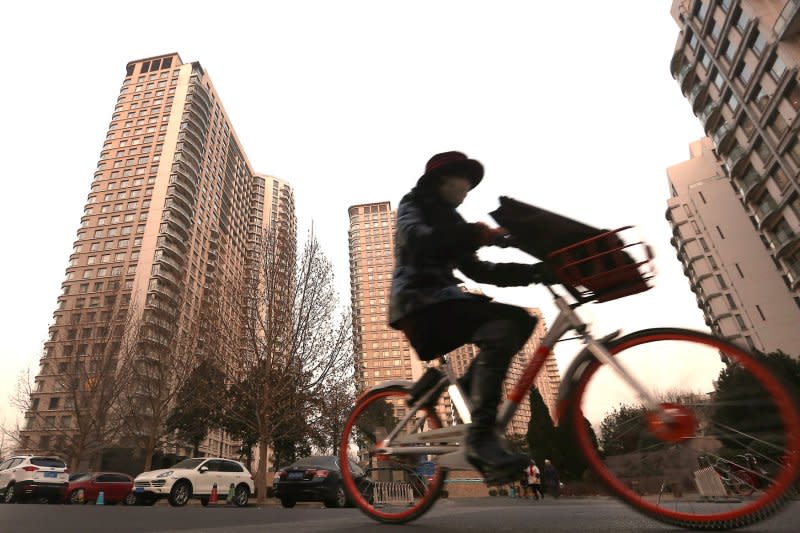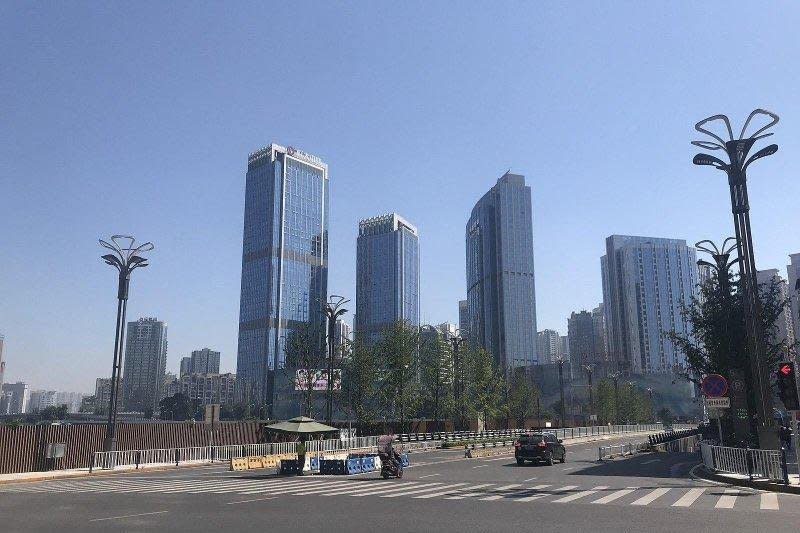China's Evergrande Group share price collapses as trading resumes after suspension

Aug. 28 (UPI) -- Shares in troubled Chinese property giant Evergrande ended their first day's trade Monday since trading was suspended 17 months ago down 79% as the market digested a $4.5 billion loss amid debts of $327.7 billion that forced the company to file for bankruptcy in the United States.
China Evergrande Group shares on the Hong Kong stock exchange immediately crashed from their March 18, 2022, closing price of 21 cents by as much as 87% to below 3 cents before recovering slightly to end Monday's session at 4.4 cents.
The company is at the forefront of a real estate crisis that is threatening to spill over into the wider economy of China as it struggles to maintain a choppy recovery from three years of COVID-19 lockdowns and restrictions.
In a filing to the HKEX on Sunday ahead of the resumption of share trading, the company said that in the half of the year to June 30 it lost $4.5 billion, down from $9 billion in the same period in 2022, with directors taking "a number of measures to improve the liquidity position and financial position of the group."
Revenue was up 44% to $17.5 billion compared with the January-to-June period half a year ago, but Evergrande's holding of cash fell by 6.3%.

Evergrande's problems have had a domino effect on the country's real estate sector, estimated to make up a third of the economy, leading to other developers defaulting on their debts and thousands of half-built projects across China.
"The key for policymakers at this moment is to prevent financial contagion and limit spillover into the overall financial system," Vanguard's Asia Pacific chief economist Qian Wang told the BBC.
Evergrande filed for Chapter 15 bankruptcy protection on Aug. 17 in New York in order to buy time while it tries to restructure debts run up in a 15-year expansion drive to become one of China's leading companies.
The company petitioned a Manhattan federal bankruptcy court under a section of the U.S. bankruptcy code that shields non-U.S. companies from being sued or having their assets in the United States seized.
Evergrande said it was seeking recognition of restructuring talks underway in Hong Kong, the Cayman Islands and the British Virgin Islands.
In July, the group belatedly reported that it had lost $81.1 billion in the past two years keeping up payments to suppliers and lenders as it battled to complete more than a thousand projects in 280 cities across the country.
Evergrande blamed the losses -- $66.4 billion in 2021 and $14.7 billion in 2022 -- on a slump that forced it to take haircuts on the value of its property developments and financial assets and higher borrowing costs.

